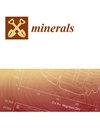A Mathematical Model for Enhancing CO2 Capture in Construction Sector Using Hydrated Lime
IF 2.2
4区 地球科学
Q2 GEOCHEMISTRY & GEOPHYSICS
引用次数: 0
Abstract
The construction sector is among the most polluting industries globally, accounting for approximately 37.5% of the European Union’s total waste generation in 2020. Therefore, it is imperative to develop strategies to enhance the sustainability of this sector. This paper proposes a multiscale COMSOL Multiphysics numerical model for an ex situ mineral carbonation process of hydrated lime. The carbonation process is characterized at both the micro- and macroscale levels, encompassing interactions within and between the particles. This model incorporates both reaction and diffusion phenomena, considering the effects of porosity and liquid-water saturation parameters. Generally, liquid-water saturation enhances the reaction kinetics but not CO2 diffusion, while porosity improves CO2 diffusion throughout the granular bed. The model has been experimentally validated, showing promising results by accurately characterizing carbonation tendencies and the influence of the CO2 flow rate and the initial water-to-solid ratio on the carbonation process. The proposed mathematical model facilitates the study of various parameters, including particle radius, reactor geometry, and material porosity. This analysis is valuable for both current and future projects, as it aims to identify the most profitable configurations for the hydrated lime carbonation process.利用熟石灰加强建筑行业二氧化碳捕集的数学模型
建筑行业是全球污染最严重的行业之一,2020 年产生的废物约占欧盟废物总量的 37.5%。因此,当务之急是制定战略,提高该行业的可持续性。本文针对熟石灰的原位矿物碳化过程提出了一个多尺度 COMSOL Multiphysics 数值模型。碳化过程在微观和宏观层面都有特征,包括颗粒内部和颗粒之间的相互作用。该模型包含反应和扩散现象,并考虑了孔隙率和液水饱和度参数的影响。一般来说,液水饱和度会增强反应动力学,但不会增强二氧化碳的扩散,而多孔性则会改善整个颗粒床的二氧化碳扩散。该模型已通过实验验证,准确地描述了碳化趋势以及二氧化碳流速和初始水固比对碳化过程的影响,显示出良好的结果。所提出的数学模型有助于研究各种参数,包括颗粒半径、反应器几何形状和材料孔隙率。这项分析对当前和未来的项目都很有价值,因为它旨在确定熟石灰碳化过程中最有利可图的配置。
本文章由计算机程序翻译,如有差异,请以英文原文为准。
求助全文
约1分钟内获得全文
求助全文
来源期刊

Minerals
MINERALOGY-MINING & MINERAL PROCESSING
CiteScore
4.10
自引率
20.00%
发文量
1351
审稿时长
19.04 days
期刊介绍:
Minerals (ISSN 2075-163X) is an international open access journal that covers the broad field of mineralogy, economic mineral resources, mineral exploration, innovative mining techniques and advances in mineral processing. It publishes reviews, regular research papers and short notes. Our aim is to encourage scientists to publish their experimental and theoretical results in as much detail as possible. There is no restriction on the length of the papers. The full experimental details must be provided so that the results can be reproduced.
 求助内容:
求助内容: 应助结果提醒方式:
应助结果提醒方式:


